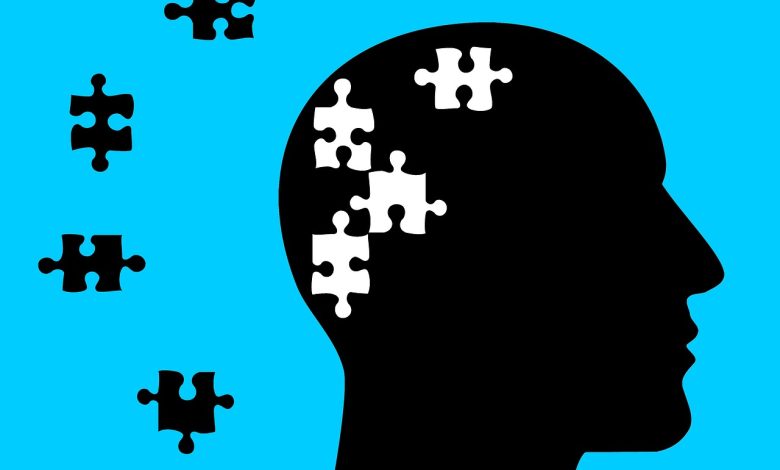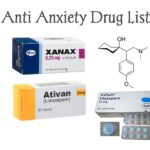List Of Antidepressants Least Likely To Cause Serotonin Syndrome

Serotonin syndrome is a potentially life-threatening condition that occurs when there is an excess of serotonin in the body. This condition can be caused by certain medications, including antidepressants that increase serotonin levels in the brain. Therefore, it is important to understand which antidepressants are least likely to cause serotonin syndrome.
Before discussing the antidepressants least likely to cause serotonin syndrome, it is important to understand what serotonin is and how it works in the body. Serotonin is a neurotransmitter that is involved in many physiological processes, including mood regulation, appetite, and sleep. It is produced in the brain and is released into the synapses between neurons, where it binds to specific receptors to transmit signals.
Antidepressants are medications that are used to treat depression and other mental health conditions. There are several different classes of antidepressants, including selective serotonin reuptake inhibitors (SSRIs), serotonin-norepinephrine reuptake inhibitors (SNRIs), tricyclic antidepressants (TCAs), monoamine oxidase inhibitors (MAOIs), and atypical antidepressants. Each class of antidepressants works differently to increase serotonin levels in the brain.
SSRIs are one of the most commonly prescribed classes of antidepressants. They work by blocking the reuptake of serotonin, which increases the amount of serotonin in the synapses between neurons. This makes more serotonin available to bind to receptors, which can improve mood and alleviate symptoms of depression. SSRIs are generally considered to be safe and effective medications, and they are least likely to cause serotonin syndrome compared to other classes of antidepressants.
The following is a list of SSRIs that are least likely to cause serotonin syndrome:
1. Fluoxetine (Prozac) – Fluoxetine is a widely used SSRI that has been shown to have a lower risk of causing serotonin syndrome compared to other SSRIs. It has a long half-life, which means it stays in the body for a longer period of time and has a gradual onset of action. This makes it less likely to cause sudden increases in serotonin levels.
2. Citalopram (Celexa) – Citalopram is another SSRI that is less likely to cause serotonin syndrome. It has a low affinity for other receptors, which means it primarily binds to serotonin receptors and has fewer side effects compared to other SSRIs.
3. Escitalopram (Lexapro) – Escitalopram is a newer SSRI that has been shown to have a lower risk of causing serotonin syndrome compared to other SSRIs. It has a high affinity for serotonin receptors and a low affinity for other receptors, which makes it a more selective serotonin reuptake inhibitor.
4. Sertraline (Zoloft) – Sertraline is another commonly prescribed SSRI that is less likely to cause serotonin syndrome. It has a moderate affinity for serotonin receptors and a lower affinity for other receptors, which makes it a selective serotonin reuptake inhibitor.
SNRIs are another class of antidepressants that are commonly prescribed. They work by blocking the reuptake of both serotonin and norepinephrine, which increases the levels of both neurotransmitters in the brain. While SNRIs are generally safe and effective medications, they have a higher risk of causing serotonin syndrome compared to SSRIs.
The following is a list of SNRIs that are least likely to cause serotonin syndrome:
1. Venlafaxine (Effexor) – Venlafaxine is a commonly prescribed SNRI that has a lower risk of causing serotonin syndrome compared to other SNRIs. It has a moderate affinity for both serotonin and norepinephrine receptors, which makes it a dual reuptake inhibitor.
2. Duloxetine (Cymbalta) – Duloxetine is another SNRI that has a lower risk of causing serotonin syndrome compared to other SNRIs. It has a higher affinity for serotonin receptors and a lower affinity for norepinephrine receptors, which makes it a more selective serotonin-norepinephrine reuptake inhibitor.
TCAs are an older class of antidepressants that are still used today. They work by blocking the reuptake of serotonin and norepinephrine, which increases the levels of both neurotransmitters in the brain. However, TCAs have a higher risk of causing serotonin syndrome compared to SSRIs and SNRIs.
The following is a list of TCAs that are least likely to cause serotonin syndrome:
1. Desipramine (Norpramin) – Desipramine is a TCA that has a lower risk of causing serotonin syndrome compared to other TCAs. It has a higher affinity for norepinephrine receptors and a lower affinity for serotonin receptors, which makes it a more selective norepinephrine reuptake inhibitor.
2. Nortriptyline (Pamelor) – Nortriptyline is another TCA that has a lower risk of causing serotonin syndrome. It has a higher affinity for norepinephrine receptors and a lower affinity for serotonin receptors, which makes it a more selective norepinephrine reuptake inhibitor.
MAOIs are an older class of antidepressants that are not commonly prescribed today. They work by inhibiting the enzyme monoamine oxidase, which breaks down serotonin and other neurotransmitters. This increases the levels of these neurotransmitters in the brain. However, MAOIs have a high risk of causing serotonin syndrome and should only be used under close supervision by a healthcare provider.
The following is a list of MAOIs that are least likely to cause serotonin syndrome:
1. Selegiline (Emsam) – Selegiline is an MAOI that is used as a patch to treat depression. It is less likely to cause serotonin syndrome compared to other MAOIs because it has a selective effect on the MAO-B enzyme, which breaks down dopamine and phenylethylamine.
Atypical antidepressants are a newer class of antidepressants that work in a variety of ways to increase serotonin levels in the brain. These medications are generally considered to have a lower risk of causing serotonin syndrome compared to other classes of antidepressants.
The following is a list of atypical antidepressants that are least likely to cause serotonin syndrome:
1. Bupropion (Wellbutrin) – Bupropion is an atypical antidepressant that works by blocking the reuptake of dopamine and norepinephrine. It has a lower affinity for serotonin receptors and is less likely to cause serotonin syndrome compared to other antidepressants.
2. Mirtazapine (Remeron) – Mirtazapine is another atypical antidepressant that works by blocking certain serotonin receptors and increasing the release of norepinephrine and dopamine. It has a lower risk of causing serotonin syndrome compared to other antidepressants.
In conclusion, while all antidepressants have the potential to cause serotonin syndrome, some classes, and specific medications have a lower risk compared to others. SSRIs, specifically fluoxetine, citalopram, escitalopram, and sertraline, are the least likely to cause serotonin syndrome. SNRIs, specifically venlafaxine and duloxetine, have a higher risk but still have a lower risk compared to other classes of antidepressants. TCAs and MAOIs have a higher risk of causing serotonin syndrome, and should only be used under close supervision by a healthcare provider. Atypical antidepressants, specifically bupropion and mirtazapine, are also less likely to cause serotonin syndrome compared to other antidepressants





